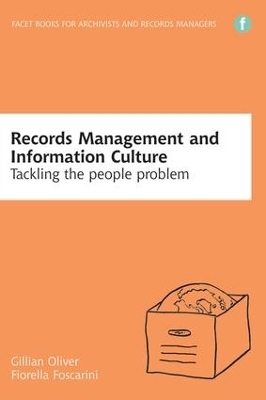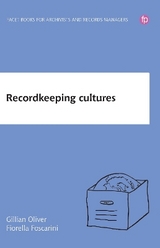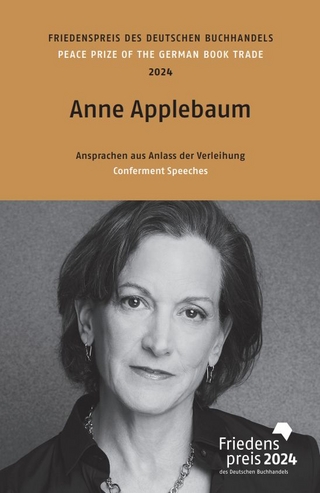
Records Management and Information Culture
Facet Publishing (Verlag)
978-1-78330-304-5 (ISBN)
- Titel erscheint in neuer Auflage
- Artikel merken
It details an innovative framework for analysing and assessing information culture, and indicates how to use this knowledge to change behaviour and develop recordkeeping practices that are aligned with the specific characteristics of any workplace.
This framework addresses the widely recognised problem of improving organisation-wide compliance with a records management programme by tackling the different aspects that make up the organisation’s information culture.
Discussion of topics at each level of the framework includes strategies and guidelines for assessment, followed by suggestions for next steps: appropriate actions and strategies to influence behavioural change.
Key topics covered include:
The value accorded to records
Information preferences
Language considerations and regional technological infrastructure
Information-related competencies
Awareness of environmental requirements relating to records
Corporate information technology governance
Trust in recordkeeping systems.
Readership: Archivists, records managers and information technology specialists will find this an invaluable guide to improving their practice and solving the ‘people problem’ of non-compliance with records management programmes. LIS students taking archives and records management modules will also benefit from the application of theory into practice. Records management and information management educators will find the ideas and approaches discussed in this book useful to add an information culture perspective to their curricula.
Gillian Oliver is an academic at the School of Information Management, Victoria University of Wellington, New Zealand. Her PhD is from Monash University, Melbourne, Australia. Her research interests centre on organisational culture, and the influences this has on the way that information is managed. She is the author of Organisational Culture for Information Managers (Chandos, 2011) and a Co-editor in Chief of Archival Science. Fiorella Foscarini holds a PhD in archival studies from the University of British Columbia, Vancouver, Canada. Prior to joining the Faculty of Information at the University of Toronto, she worked as senior archivist for the European Central Bank. In her teaching and research, she uses archival science, diplomatics and genre theory, as well as ideas of organizational culture and information culture to investigate how records are created, managed, and preserved in organizations.
1. Background and context
The concept of information culture
Underlying theory
The information culture assessment framework
Why information culture?
Summary and conclusions
Notes
References
2. The value accorded to records
Cultural influences
Attitudes and behaviours
Records management infrastructure
IT usage: The EDRMS challenge
Assessment techniques
Next steps
Summary and conclusions
Note
References
3. Information preferences
Words or pictures?
Sharing information
Assessment techniques
Next steps
Summary and conclusions
References
4. Language considerations and regional technological infrastructure
Language as a social fact
Dealing with your organization’s broader technological context
Assessment techniques
Next steps
Summary and conclusions
Note
References
5. Information-related competencies
The training imperative
Information-related competencies
Assessment techniques
Next steps
Summary and conclusions
References
6. Awareness of environmental requirements relating to records
Researching recordkeeping requirements
Other requirements
How to do it
Organizational policy
Assessment techniques
Next steps
Summary and conclusions
Notes
References
7. Corporate information technology governance
Information governance
Information architecture
Security
Cloud computing
Assessment techniques
Next steps
Summary and conclusions
References
8. Trust in recordkeeping systems
Trust and trustworthiness
Audit
Mistrust
Ethical practice
Assessment techniques
Next steps
Summary and conclusions
References
9. Bringing it all together
Soft systems methodology
The genre approach
Assessment techniques
Next steps
Summary and conclusions
Note
References
| Erscheinungsdatum | 29.10.2017 |
|---|---|
| Verlagsort | London |
| Sprache | englisch |
| Maße | 168 x 237 mm |
| Gewicht | 191 g |
| Themenwelt | Sozialwissenschaften ► Kommunikation / Medien ► Buchhandel / Bibliothekswesen |
| ISBN-10 | 1-78330-304-2 / 1783303042 |
| ISBN-13 | 978-1-78330-304-5 / 9781783303045 |
| Zustand | Neuware |
| Haben Sie eine Frage zum Produkt? |
aus dem Bereich



